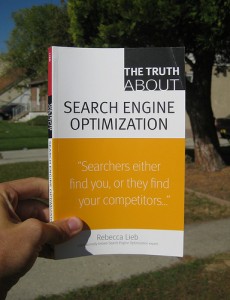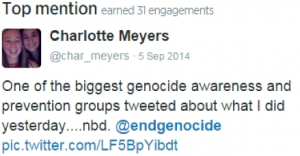Despite the 96% of companies who administer reference checks on job applicants, the effectiveness of this step in the hiring process is often disturbingly low. Many companies conduct them as a formality, checking the box simply because that’s the way they’ve always done it. But the lack of a solid process renders reference checks unreliable and inadequate.
Some experts argue that the employment reference check is obsolete, better suited for the days when communities and organizations were smaller and more intimate. We disagree. Done correctly and consistently, these checks can provide valuable insight into how a candidate works, outside of what they may have told you in the interview or written on their resume. The following are a few of our best practices for better employment reference checks.
Talking to the Right References
The experts may be partially correct when they argue that reference checks are better suited for smaller companies that once reigned over the business landscape. Certainly, the larger the organization, the more diluted an employer’s perception of their coworkers or direct reports. To overcome this challenge, you must ensure you’re getting the names of the right references.
Most likely, you have already ruled out non‑professional references as an option. Friends and family members simply won’t have the insight into how a candidate executes their work or interacts in the office. But simply asking for “professional references” isn’t enough either. At least two of the references should be managers or supervisors who can speak knowledgeably about the applicant’s performance, communication and work ethic. But when those managers have limited interaction with the candidate, peer colleagues who have worked alongside them on a daily basis are also valuable references.
To get a true balance, you will likely need to ask for more than the typical three contacts. If you assume that at least one or two references will be less forthcoming, asking for five is much more effective.
Finally, understand a candidate’s preference for confidentiality in their job search. If your reference check occurs before a job offer is extended or the candidate has yet to notify their employer of their resignation, checking current references may be off the table until that happens. This constraint restricts the reference check to people who may have limited or outdated knowledge of your candidate. It’s important to work closely with your candidates through this process to make sure both goals – their confidentiality and your thorough screening – can be met.
Asking Effective Questions
Too many companies rely solely on employment verification, checking a candidate’s employment dates and titles, without going the extra mile to implement thorough reference check. While employment verification is vital to cross-reference with a candidate’s resume, it’s really the tip of the iceberg. Similarly, a reference check that asks vague, open-ended questions, such as, “what can you tell me about Joe?” is one-dimensional and lacking deeper insight. There’s also the scenario in which some hiring managers just “wing it” and ask sporadic questions on each call without documentation or a hint of consistency.
None of these approaches will result in a thorough, meaningful, reproducible reference check. First, whether the process is via telephone or online portal, it needs to be documented, with a consistent set of questions, for every single reference. Questions should go beyond the basics of confirming job responsibilities, and probe into the candidate’s ability to work with others, their leadership and communication style, their performance under pressure, and their biggest opportunities to improve.
Another valuable approach is to apply the concept of behavioral interviewing to your reference check questions. The idea here is that past performance predicts future performance, and there is a certain style of question that best reveals those past behaviors. For example, ask, “Describe an instance in which Joe went the extra mile to complete a critical project or task” or “Tell me about a time when Joe had a conflict with a team member. How did he communicate and work to resolve the situation?” Behavioral-based reference checks can provide in-depth insight into a candidate’s interpersonal skills, self-management, adaptability, work ethic and more. Finally, a great question to conclude with is, “What else should I know about Joe that I haven’t already asked?”
Overcoming Reference Biases
It’s highly unlikely that a candidate will provide you with a reference who they suspect won’t provide positive feedback. Thus, you can assume that most references will have a slight bias towards helping your candidate and avoiding criticism. But this can be an impediment to your screening process, particularly if your candidate does in fact have poor performance, a bad attitude, or negative work ethic.
Overcoming reference check biases requires some creative wording. For example, asking about a candidate’s opportunities to improve sounds more positive than asking directly about their weaknesses. Behavioral-based reference check questions are also helpful in this regard, as it’s more difficult for a reference to make up a story on the spot to protect their coworker. Finally, it’s important to assess your list of questions for ones which may lead the reference towards a particular answer or even supply the answer itself within the question. For example, don’t ask, “This position requires attention to detail and excellent communication skills. What skills do you think Joe can bring to our company?”
The effort to overcome biases is also another reason why asking for five references instead of just three is a good idea. The more sources you have, the closer you’ll get to an accurate portrayal of your candidate.
Achieving Insightful Employment Reference Checks
The employment reference check is an important factor in the entire background screening process. It helps to deliver the big picture, enabling you to make a more informed hiring decision. Avoid conducting reference checks as just another box to check. These best practices will be the ticket that takes you from an average candidate to a great candidate.
Business & Finance Articles on Business 2 Community(89)




